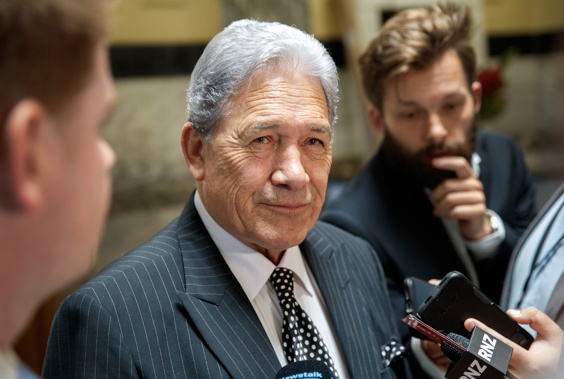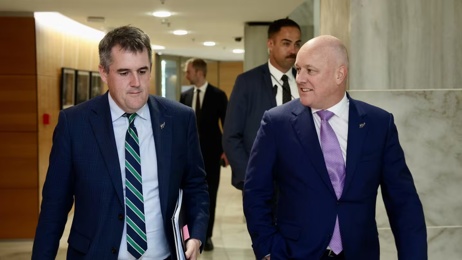
The overseas economic strategies that Winston Peters might be keen to bring home
Several economic strategies used by countries such as India, Singapore and Ireland might soon be implemented in New Zealand after a glowing report from Foreign Minister Winston Peters.
The minister returned over the weekend from the final leg of his visit to South and Southeast Asia, finishing in Singapore, where the Government said he "focused on enhancing one of New Zealand’s indispensable strategic partnerships".
Peters met Singapore’s Defence Minister, Ng Eng Hen and Second Minister for Foreign Affairs, Mohamad Maliki Osman and discussed how to develop "an even stronger, more ambitious New Zealand-Singapore relationship".
During an interview today on the Mike Hosking Breakfast, Peters said he had been an admirer of Singapore “for all my career".
"They went out and positively took an island nation the size and land area - with no resources - of Lake Taupo and turned it into a world-class system. Development all the way through."
Peters also said he'd seen examples of progressive taxation strategies during an earlier visit to India, which he compared to Singapore and the United Kingdom's Ireland - countries he said were "progressive about attracting business".
He said the trip had been excellent.
"We saw opportunities, maybe 10 or 15 things we can do and very quickly in terms of trade."
Peters didn't provide specific examples of strategies that Ireland and Singapore used that he might be inspired to introduce in New Zealand, he gave a doubtful response to whether strategies in Singapore could be replicated back home.
"I wish we could," he told Hosking.

"You don't beat taxation mutually; you've got to be clever like Ireland.”
The Irish, Peters said, “turned themselves around... and got 10 businesses bigger than New Zealand's dairy board by being that progressive".
However, Peters' chief of staff, Darroch Ball told Newstalk ZB Plus that a lot of the economic success of Ireland and Singapore came down to their deliberate strategy of actively growing more diversified economies that enable them to capture emerging global opportunities.
"This includes a strong record of distinctive industrial policy, investing heavily in developing positions of innovation-led competitive advantage in core parts of their economy," he said.
Certain aspects would prove a challenge to copy, Ball said, such as their proximity to the larger continents of Asia and Europe. This meant they were able to set up favourable tax regimes based on their regional proximity to larger countries and when more permissive global rules were in place.
"It would be harder for New Zealand to replicate this due to our geographical location and recent changes to the international tax rules," said Ball.
However, Ireland, had been successful in its foreign direct investment policy, Ball said, using all levers, including around tax and land. As for Singapore, he said its success has been based on an overarching plan to set an enduring direction.
"With its geographical location Singapore has focused on its role as a trusted and reliable intermediary of goods and services," he said.
"This has seen significant investment in infrastructure, particularly its port - the second busiest in the world - and airport. Equally, Singapore has also had a big focus on investment attraction, which is bolstered by active government facilitation of industry."
Ball added that the Singaporean government has a target of 25% of GDP from the manufacturing sector.
"[This] has allowed Singapore to retain its manufacturing sector despite its relatively scarce labour and land resources."
During the Government's trip to India, which Ball took alongside Peters, the travelling party visited Gujarat International Finance Tec (Gift) City - in Ahmedabad.
"A range of incentives, including a nine per cent tax rate for the first 10 years, are provided to encourage principally finance and tech businesses to establish themselves in what is essentially a special economic zone," said Ball.
When asked by ZB Plus how many of the strategies he'd observed in all three countries could be introduced in New Zealand, Ball provided an optimistic answer but said there were still challenges.
"New Zealand should, and would, be able to implement all of [the strategies] to some degree. But the right pieces are not in place currently to do so."
Take your Radio, Podcasts and Music with you









